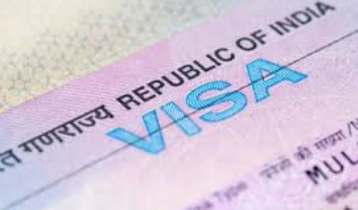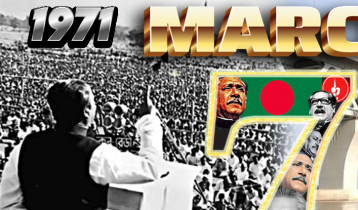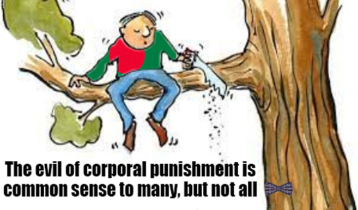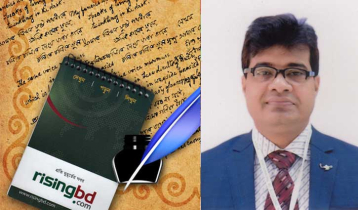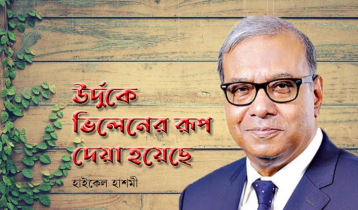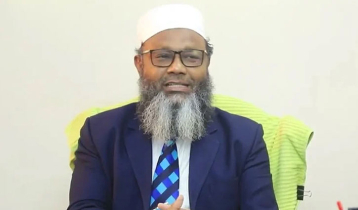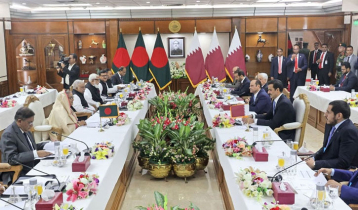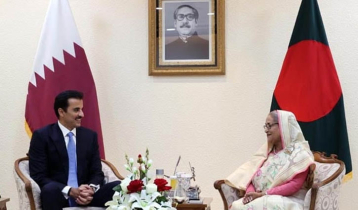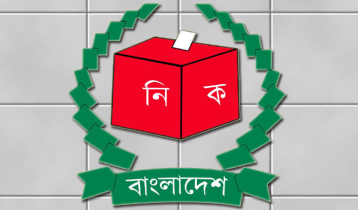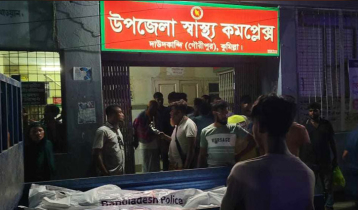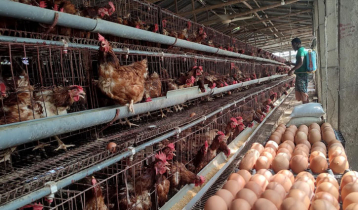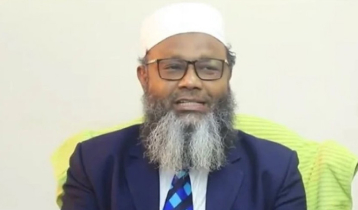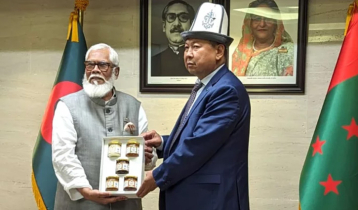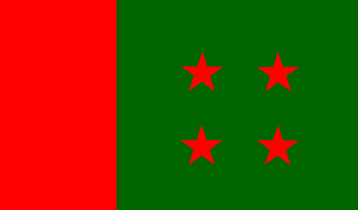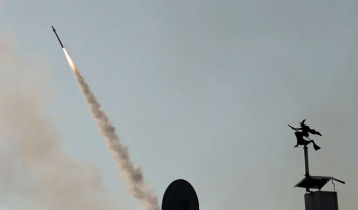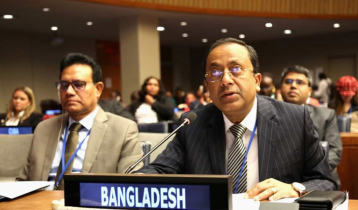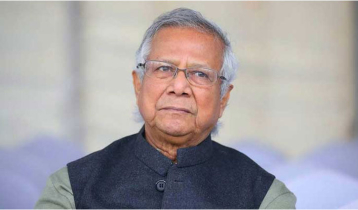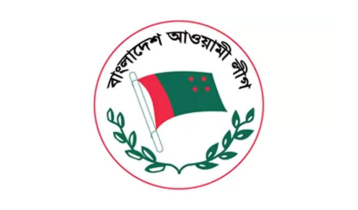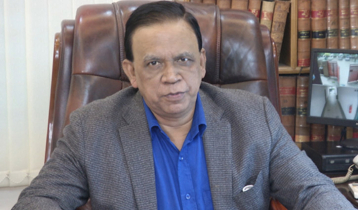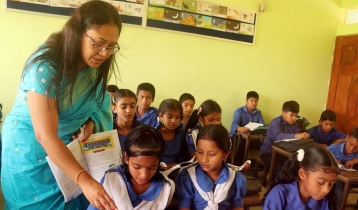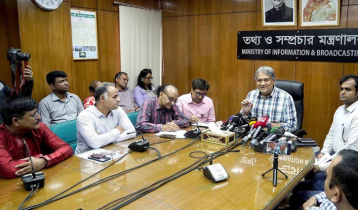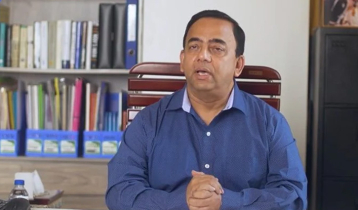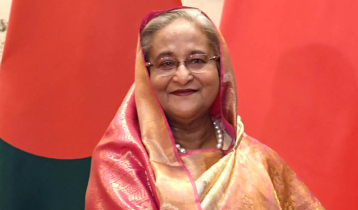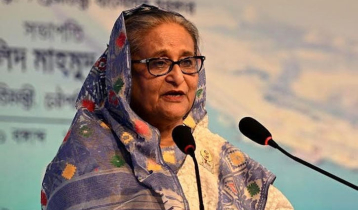Let`s pledge for parity
Augustin Sujan || risingbd.com
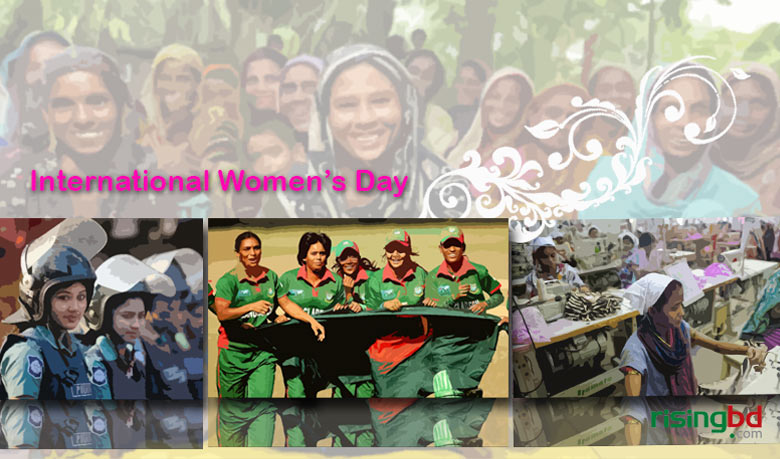
International Women`s Day creates the opportunity for women in achieving their rights
Augustin Sujan: The International Women`s Day is observed on March 8 to celebrate the social, cultural, economic and political achievements of women for more than 100 years. It is the celebration, reflection, advocacy and action for women, both locally and at a global level. The contribution of women in the development of civilization and human society is without any debate. Every year, International Women`s Day creates the opportunity for women in achieving their rights.
However, in reality, it seems the call for ensuring women rights has entirely not realized. For which, this year the campaign theme of the International Women`s Day has been chosen as `Pledge for Parity`. The theme calls for complete gender equality and the closing of the gender gap in social, economic, political, and other situations. It is a grave concern that even in the twenty first century; women have to fight for parity.
Many writers, poets, thinkers, social activists, politicians and world leaders raised their voices for gender parity. Kazi Nazrul Islam, national poet of Bangladesh, wrote: "The things which are good and great for the world; Half of them have been done by women and half by men." In the two lines, the poet has truly expressed the contribution of women in the development of civilization and human society. Nazrul was much aware that the women are not less than men in any field rather they are equal to men in all aspects.
Renowned lyricist Mahbubul A Khalid is also moved with compassion observing gender inequality in the present world. The ill treatment of women in family, society, state and in the world compels him to raise his pen for the rights of women. The lyrics of his songs emphasize on gender parity. Through his songs, Mahbubul A Khalid urges all to evaluate women and the potentialities they have so that women can also make great contribution for the world and its development.
For example, Mahbubul A Khalid`s song `Don`t despise girls` advocates for gender parity. Every line of this song makes appeals to all human beings to evaluate women and their abilities. The song calls for gender parity and urges all not to neglect girls for being women.
His song `Are women so mean!` tells us that women are not consumer products. Women possess motherly affection. They are unique with their own virtues. Women are conquering the Himalayas, exploring in the space. They are excellent in war fields, sports, business, politics and every other field.
Another song of Mahbubul A Khalid `Ma` deals with the aspects of women as mother. A mother does lots of works for her family and for that she has to sacrifice many things. If parity is achieved, women will not be confined at home doing only household chores. They will be able to make huge contribution for their family, society and state and truly speaking for the world.
Mahbubul A Khalid`s song `Ma`
However, parity is not yet ensured and for that we are to pledge for it. And the International Women`s Day has once again urges us to make promise for parity. The day first emerged from the activities of labour movements at the turn of the 20th century in North America and Europe. The earliest Women`s Day observance was held on 28 February 1909 in New York, organized by the Socialist Party of America in remembrance of the 1908 strike of the International Ladies` Garment Workers` Union. On March 8, 1908, thousands of women marched through the streets of New York City to publicly call for better working conditions, higher pay, and the right to vote.
The following year, the U.S. recognized its first National Women`s Day on March 8, 1909. Just a year later, women around the world came together in Denmark for the second International Conference of Working Women, where the idea for International Women`s Day was proposed. As a result, the first international celebration occurred the very next year in 1911. More than one million people — women and men — participated in rallies and events in the European countries where it was recognized. The annual celebration grew quickly from there. The International Women`s Day was first observed as a popular event after 1977 when the United Nations General Assembly invited member states to proclaim March 8 as the UN Day for women`s rights and world peace.
The campaign theme for 2016 is Pledge for Parity, as progress towards gender parity has slowed in many places. However, the United Nations theme for this year is “Planet 50-50 by 2030: Step It Up for Gender Equality.” In 2014, the World Economic Forum (WEF) predicted it would take until 2095 to achieve global gender parity. A year later, WEF estimated a slowdown in the already icy pace of progress meant the gender gap would not close entirely until 2133. This year, the organizers of International Women`s Day are asking supporters to `Pledge For Parity` to take a concrete step to help achieve gender parity more quickly; whether to help girls achieve their ambitions, call for gender-balanced leadership, end workplace bias or develop a more inclusive culture.
Throughout the ages women have lived in the “men’s world” saturated by male dominating ideology. Only in recent times there has been growing awareness among women of many societies about the dysfunctional implication of the underlying injustice and gender based inequity whereby women have perpetually suffered. The movement for women’s emancipation in Bangladesh was started by Rokeya Sakhawat Hussain (1880-1932). She was the pioneer of the women’s emancipation movement as she established the first Muslim girls’ school in Calcutta which started with eight students in 1911.
After achieving independence in 1971, Bangladesh has been following policies and programmes for the development of women. The International Year (1975) and the UN Decade for Women (1976-85) provided a framework for goal-oriented programmes for women development in Bangladesh. The Government created Bangladesh National Women’s Association (BJMS) in 1976 and the Ministry of Women Affairs in 1978. In 1995, the Government formed a National Council for Women Development (NCWD).
Though women constitute half (48.5%) of the total population of Bangladesh, a great majority of them are still left out from the mainstream development activities. In spite of the constitutional declaration of equal rights and status for women and men, they are not still regarded as equal. According to USAID, Bangladeshi women face barriers and disadvantages in nearly every aspect of their lives, including access to health services, economic opportunity, political participation, and control of finances. However, government and non-government organizations are working to increase female participation, reduce gender inequality, and raise awareness about the positive impacts of empowering women and girls throughout society.
It`s a positive sign that with the combine affords from various quarters, violence against women, child-marriage, gender discrimination etc. are decreasing from our society. On the other hand, social, economic and political emancipation of women is increasing. Women are participating in various challenging professions and tasks. Awareness in gender parity in all aspects is building up which will make the world a better place for girls and women. It is expected that this year all will `Pledge for Parity` and create more opportunities for women.
risingbd/DHAKA/March 8, 2016/Augustin Sujan
risingbd.com



